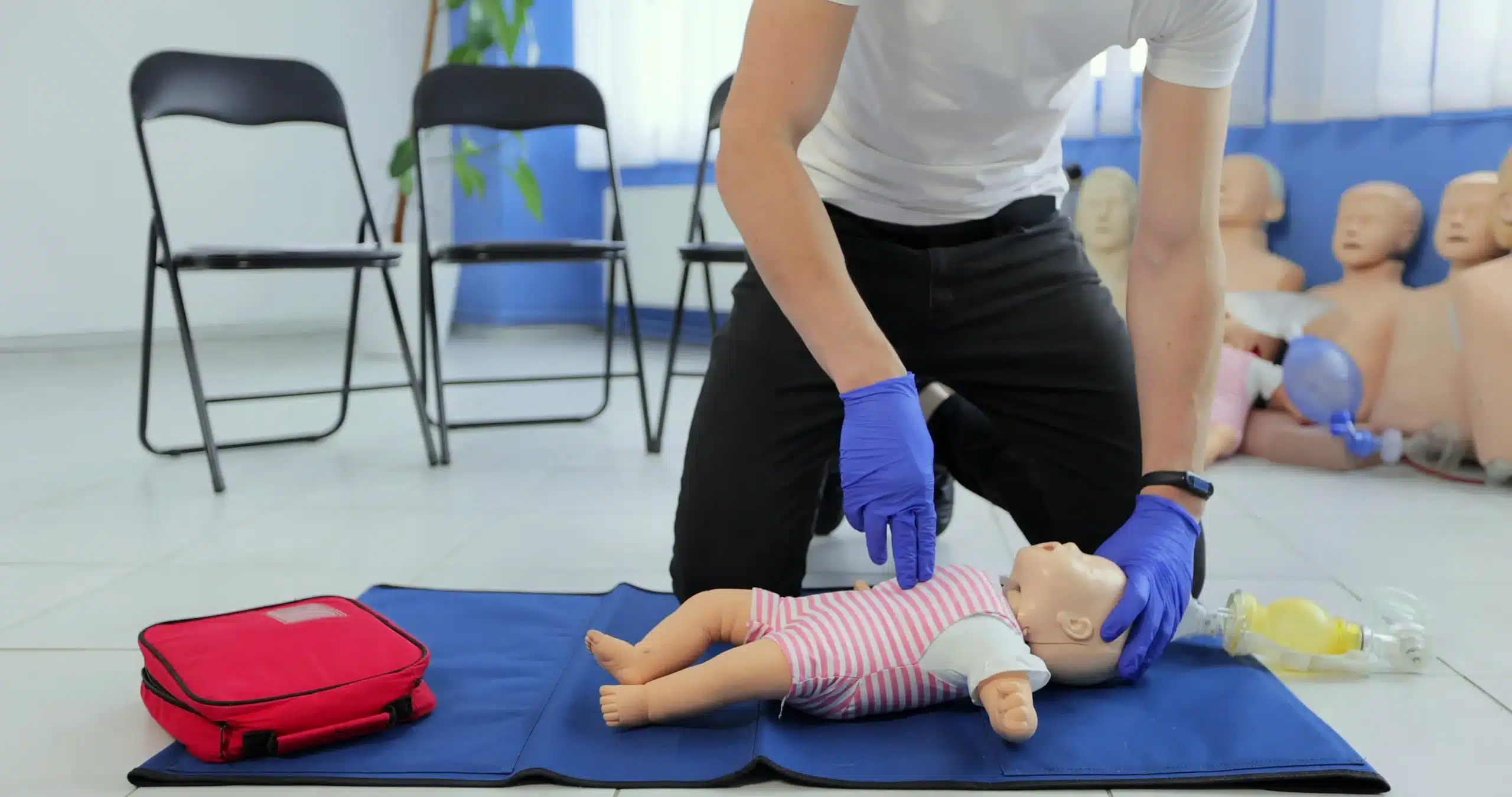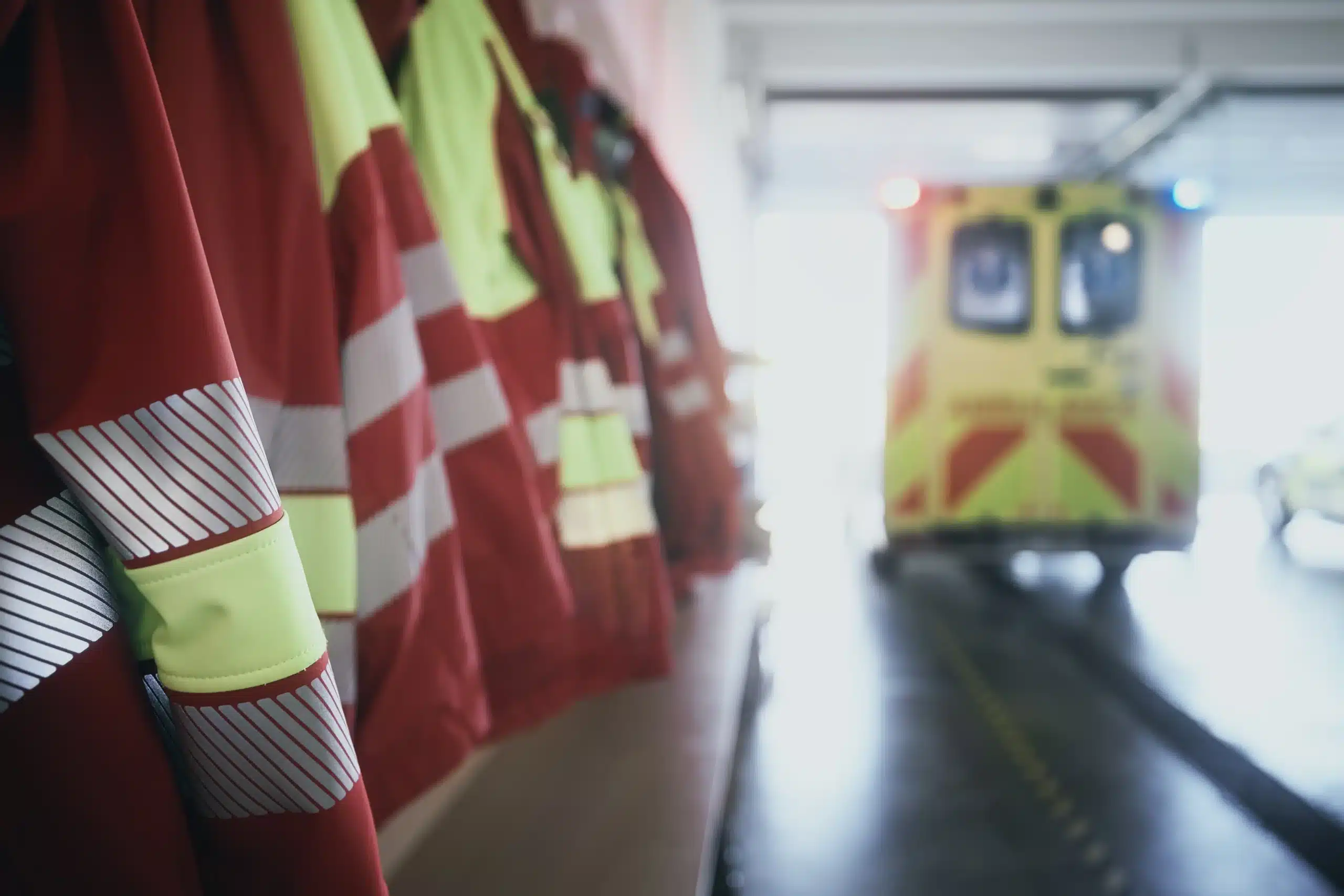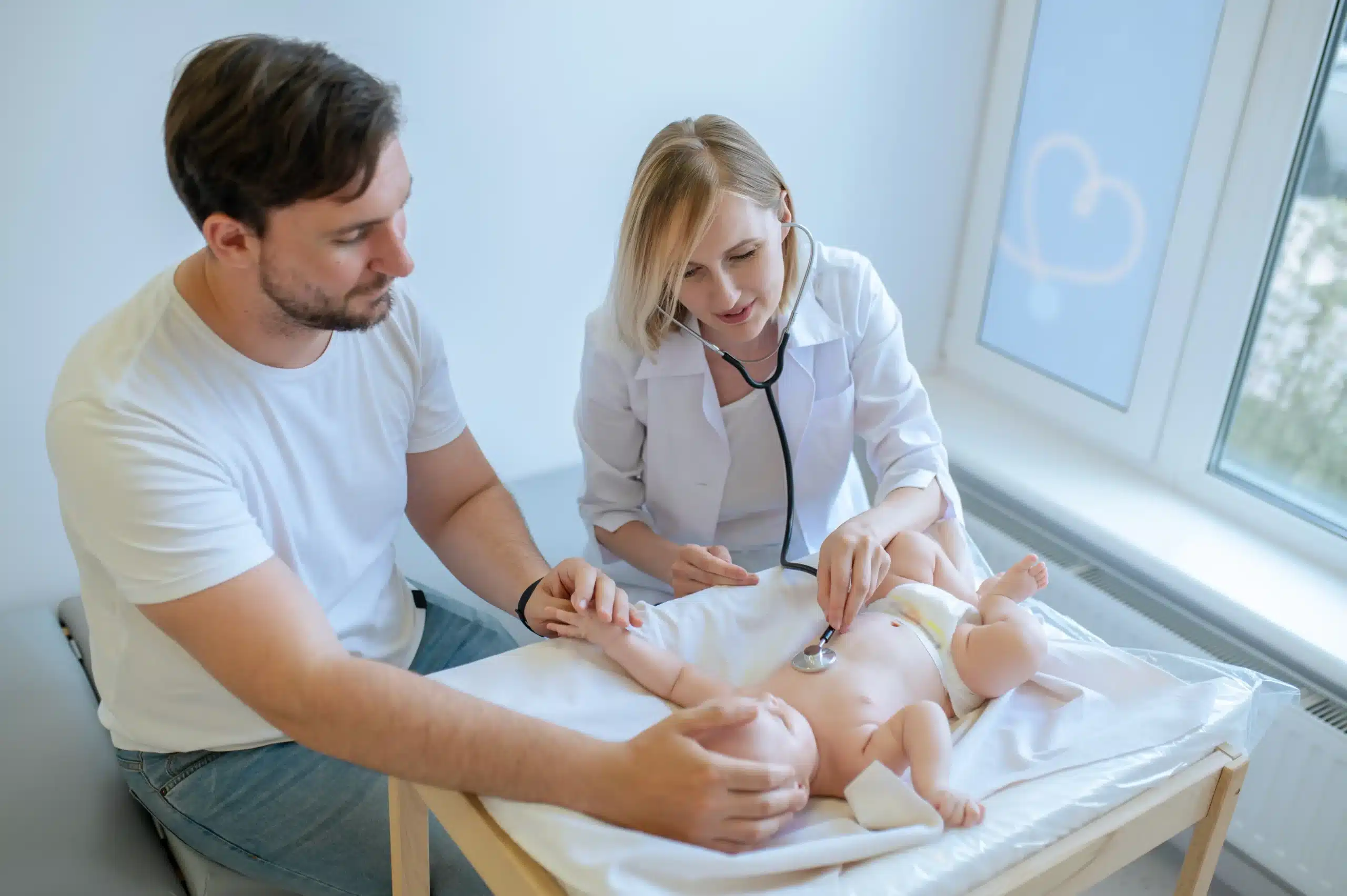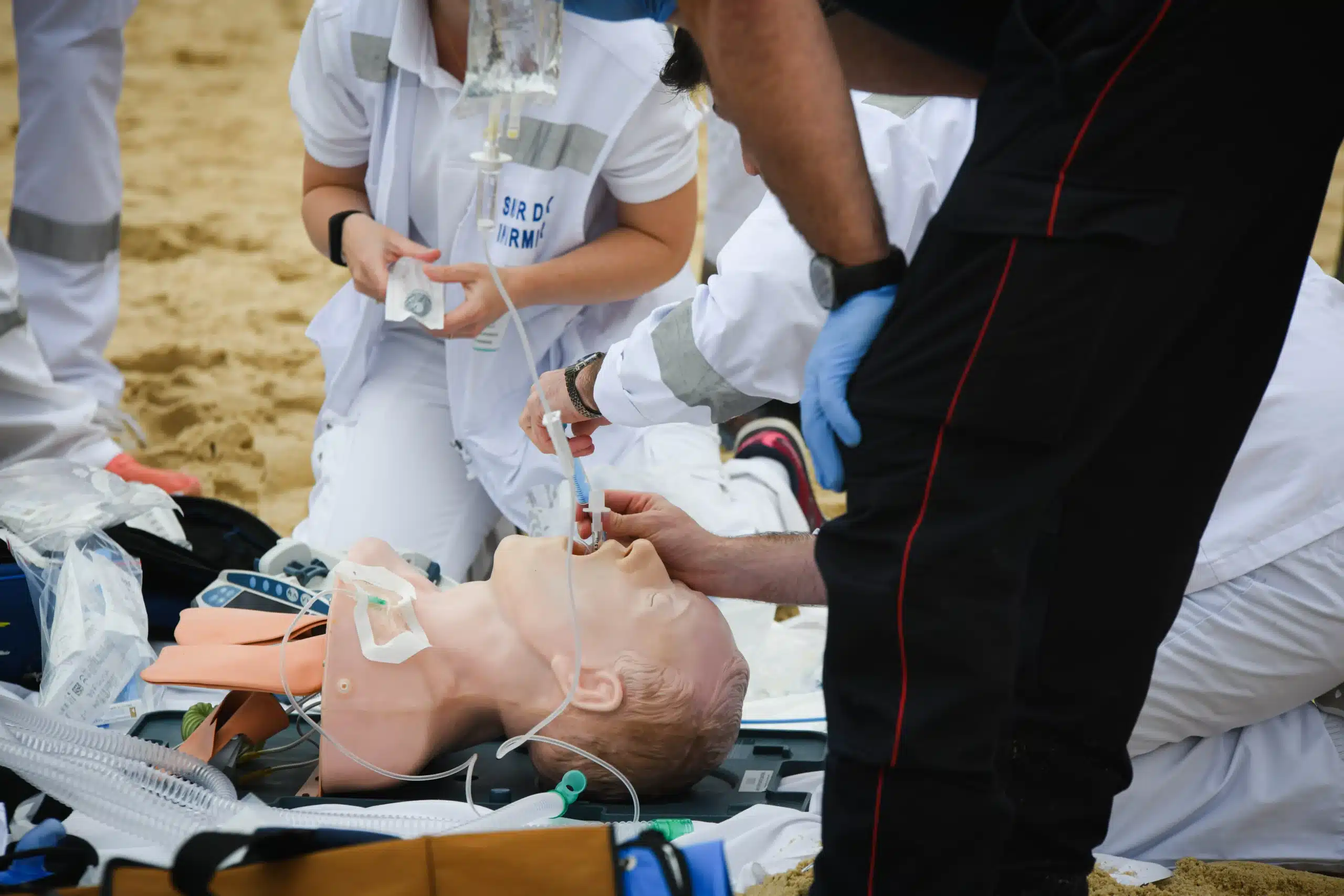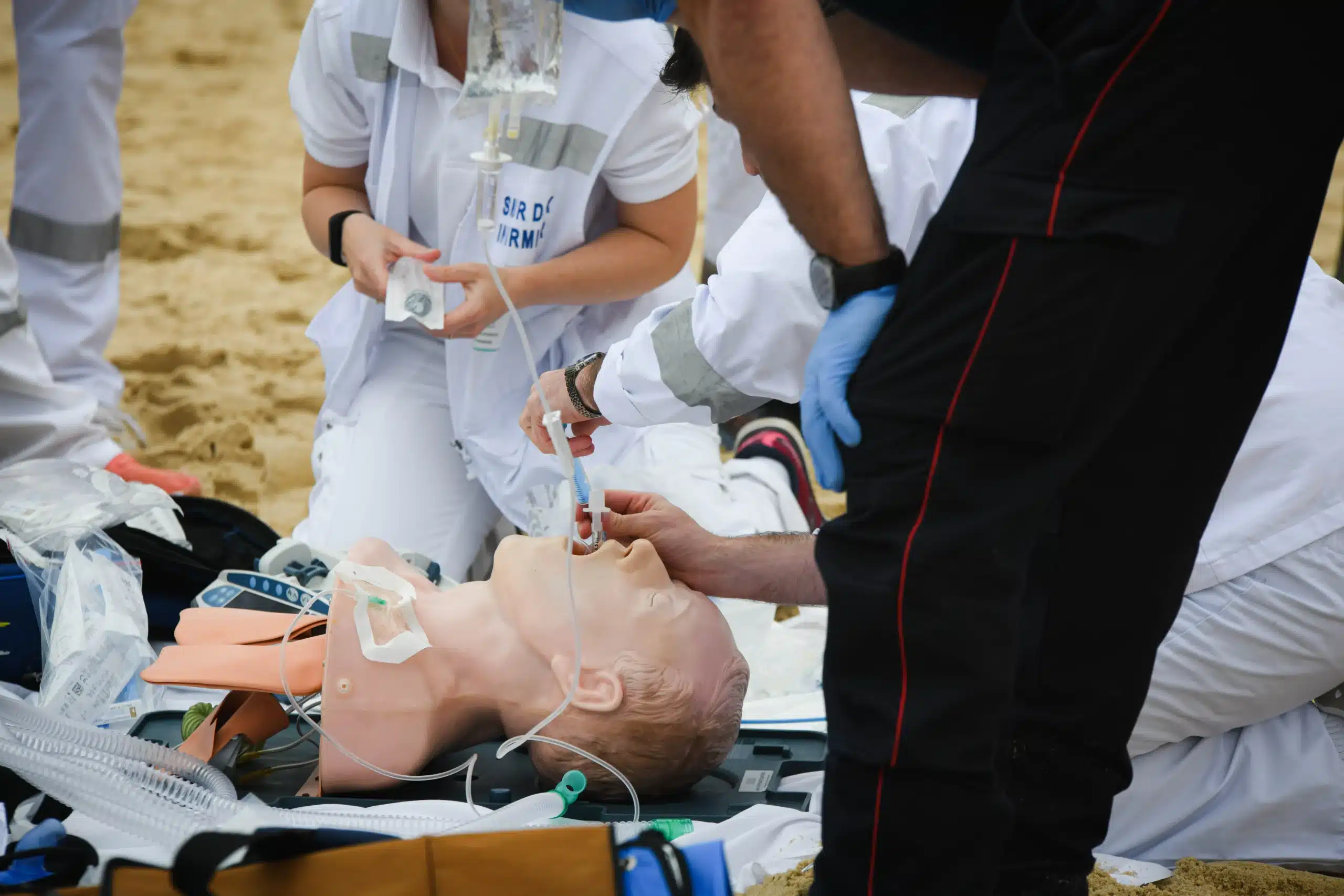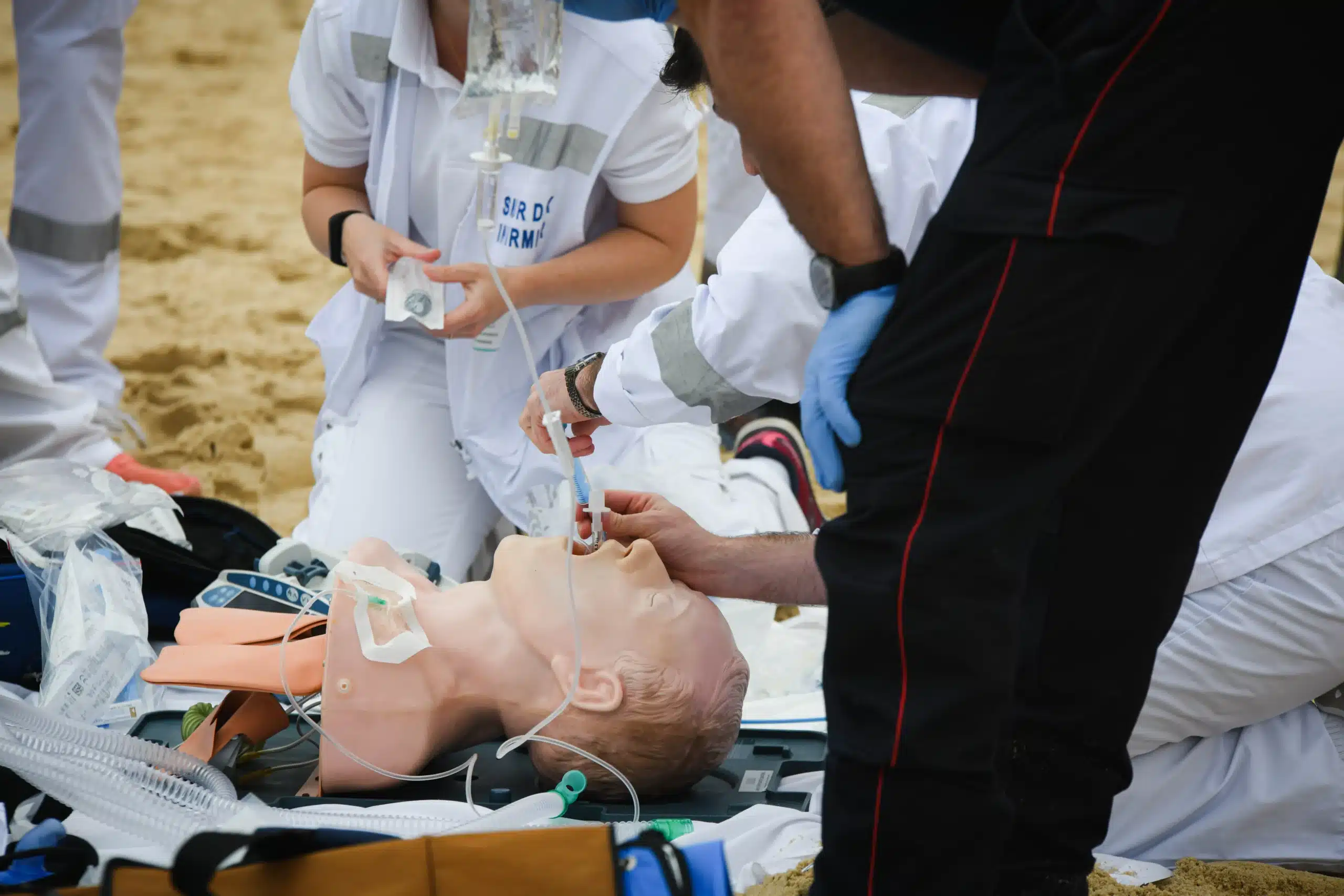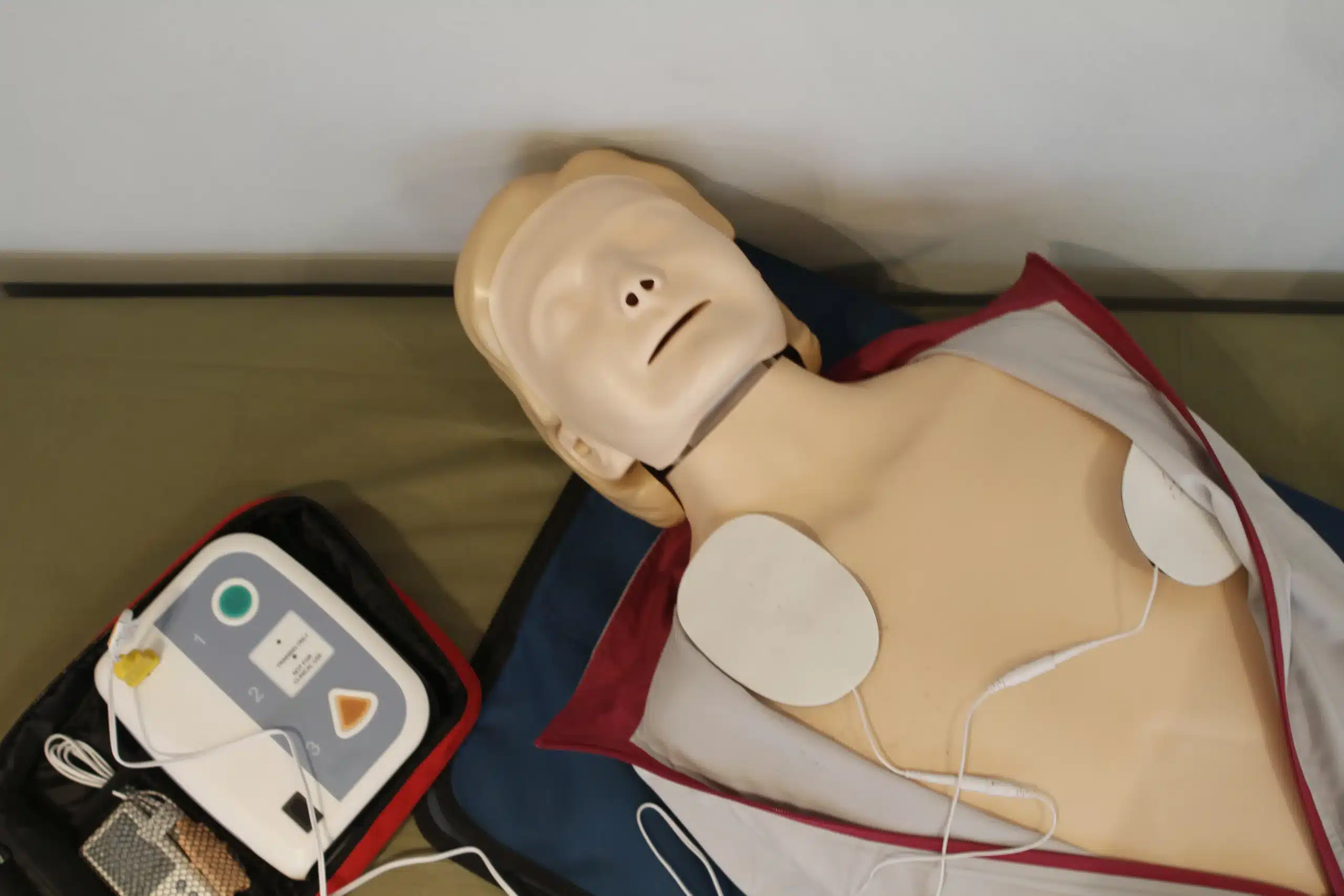When it comes to cardiac emergencies, every second counts. Healthcare professionals in Dublin know the importance of being prepared for any situation. Advanced Cardiovascular Life Support (ACLS) training equips you with the skills and confidence to respond effectively to complex cardiovascular emergencies, ultimately improving patient outcomes. This article serves as your comprehensive guide to advanced cardiac life support in Dublin, covering everything from course structure and prerequisites to cost considerations and the long-term value of ACLS certification. We’ll also explore common misconceptions about ACLS training and highlight the numerous benefits it offers healthcare professionals.
Key Takeaways
- ACLS certification enhances your ability to manage cardiac emergencies: It provides the advanced skills and knowledge needed to handle complex situations, leading to improved patient care.
- Select an ACLS course that meets your needs: Consider factors like accreditation, instructor experience, and course content to ensure you receive high-quality training.
- Prepare thoroughly for your ACLS course: Review pre-course materials, practice essential skills, and focus on teamwork to maximize your learning and boost your confidence.
What is ACLS?
Advanced Cardiovascular Life Support (ACLS) is specialized training designed to equip healthcare professionals with the skills to manage cardiovascular emergencies. It goes beyond basic life support, focusing on the timely diagnosis and treatment of life-threatening conditions like heart attacks, strokes, and other respiratory emergencies. Think of it as the next level of expertise for those dedicated to providing critical care.
Key ACLS Training Components
ACLS courses cover a comprehensive range of topics essential for effective emergency response. You’ll learn advanced airway management techniques, ensuring patients receive adequate oxygen. The program also emphasizes recognizing and interpreting cardiac rhythms, a crucial skill for rapid diagnosis. Proper medication administration is another key component, empowering healthcare providers to deliver appropriate treatments swiftly. Through a blend of classroom instruction and hands-on simulations, you’ll practice managing a variety of cardiac emergencies, building confidence and competence in high-pressure situations. Many courses, like those offered by Safety Training Seminars, incorporate realistic simulations to reinforce practical skills. You’ll also find programs covering more specialized areas, such as RQI classes.
Why Healthcare Professionals Need ACLS Certification
ACLS certification is vital for any healthcare professional involved in emergency medical care. It signifies a higher level of proficiency in managing complex cardiovascular emergencies. Doctors, nurses, paramedics, and other allied health personnel benefit significantly from this training. Holding a current ACLS certification demonstrates a commitment to providing the highest standard of patient care, enhancing your professional credibility and opening doors to career advancement. It also equips you with the skills and confidence to make critical decisions under pressure, ultimately improving patient outcomes. For those seeking affordable options, consider exploring providers with a low price guarantee.
Top Dublin ACLS Course Providers
Finding the right Advanced Cardiovascular Life Support (ACLS) course in Dublin depends on your individual needs. Here’s a summary of leading providers in the area:
Safety Training Seminars
Safety Training Seminars offers various life-saving certifications in Pleasanton, California, but doesn’t currently provide ACLS courses in Dublin. If you’re interested in CPR and First-Aid training in Pleasanton, explore their certification courses. For ACLS training specifically in Dublin, consider the providers below.
Code Blue
Code Blue offers a two-day, internationally recognized ACLS course accredited by both the Irish Heart Foundation and the American Heart Association. Their curriculum covers CPR, AED use, advanced airway management, rhythm recognition, and medication administration for various cardiac emergencies. Successful completion requires a pre-course quiz, active participation, a Megacode test, a BLS skills demonstration, and a final exam.
Royal College of Surgeons in Ireland (RCSI)
The RCSI provides a two-day ACLS course based on American Heart Association guidelines, designed for doctors managing cardiac arrest and cardiovascular emergencies. Learn more about their ACLS Provider certification, valid for two years upon completion.
Irish Heart
Irish Heart’s ACLS Provider course in Dublin, delivered by Code Blue, is a two-day program for healthcare professionals handling serious heart emergencies. This course also leads to a two-year certification.
Medicore
Medicore offers ACLS training for healthcare professionals in both pre-hospital and in-hospital settings. A prerequisite for this course is a current Basic Life Support (BLS) certificate.
St James’s Hospital
St James’s Hospital’s Resuscitation Department provides basic and advanced life support training, primarily for their staff. However, external healthcare providers, including GPs, dentists, nurses, and pharmacists, can also access these courses.
Understand ACLS Course Structure and Content
Understanding the structure and content of an Advanced Cardiovascular Life Support (ACLS) course is key to choosing the right program and maximizing your learning experience. A well-rounded ACLS course covers essential components, from theoretical knowledge to practical application and teamwork.
Classroom Instruction and Theory
ACLS courses are built upon the most current American Heart Association (AHA) guidelines for resuscitation and emergency cardiovascular care. These guidelines ensure your training reflects the latest evidence-based practices. Expect in-depth instruction on topics like recognizing and managing cardiac arrest rhythms, understanding essential medications, and navigating complex cardiovascular emergencies. This foundational knowledge provides the framework for effective decision-making during critical situations. The Royal College of Surgeons in Ireland partners with organizations like the Irish Heart Foundation to deliver comprehensive and up-to-date training.
Hands-on Simulations and Practical Skills
Theory alone isn’t enough in emergency medicine. ACLS courses incorporate hands-on simulations and practical exercises to bridge the gap between knowledge and application. These simulations, sometimes called “Megacodes,” provide a safe environment to practice essential skills like CPR, using an AED, advanced airway management, and administering medications. Code Blue highlights the importance of these practical simulations. By working through realistic scenarios, you’ll develop the muscle memory and critical thinking skills needed to respond effectively under pressure.
Team Dynamics and Communication Training
Effective teamwork and communication are crucial during a cardiac arrest. ACLS courses emphasize these non-technical skills, recognizing that coordinated efforts lead to better patient outcomes. You’ll learn how to communicate clearly and concisely within a team, delegate tasks, and work together seamlessly in high-stress environments. The RCSI emphasizes how important both technical and non-technical skills are for effective team participation.
Blended Learning Options
Recognizing that everyone learns differently and has various schedules, many ACLS providers offer flexible learning options. The American Heart Association outlines various course formats, including traditional classroom courses, blended learning (combining online modules with in-person skills sessions), and options for purchasing additional study materials. This flexibility allows you to choose the format that best suits your learning style and availability.
Meet ACLS Certification Prerequisites
Before you jump into an Advanced Cardiac Life Support (ACLS) course, you’ll need to check off a few prerequisites. Understanding these requirements ahead of time will help you prepare and make the most of your ACLS training.
BLS Certification Requirement
A current Basic Life Support (BLS) certification is the foundation for ACLS training. This prerequisite ensures you’re already familiar with essential life-saving techniques like CPR. Think of it as building a house—you need a solid foundation before adding the walls and roof. Make sure your BLS certification is valid before enrolling in an ACLS course.
Online Pre-Course Materials
Once enrolled, most ACLS courses provide access to online pre-course materials, typically including an ACLS provider manual and access to the American Heart Association’s online learning platform. Take the time to work through these materials—they’ll introduce key concepts and prepare you for the intensity of the course. It’s like reading the assigned chapters before a college lecture; it helps you absorb the information more effectively.
Prepare for Your ACLS Course
Along with the required pre-course work, additional preparation can significantly improve your experience. Many programs offer online ECG tutorials, quizzes, and videos to help you get ready. You’ll also likely have a pre-course quiz to complete. Active participation in all course sessions, successful completion of a Megacode test, demonstrating your BLS skills, and passing a final exam (often with a minimum score of 84%) are typically required for certification. Thorough preparation will not only help you succeed in the course but also build your confidence in applying these skills in real-world situations. For related information, visit our CPR and First Aid Certification page.
Evaluate ACLS Course Costs and Value
When choosing an ACLS course, cost is naturally a factor. However, it shouldn’t be the only deciding factor. Think of your ACLS training as an investment in your career and in providing the best possible patient care. Evaluating the overall value—not just the price tag—will help you make the right choice.
Compare Course Prices
ACLS course fees in Dublin can vary depending on the provider, course format (in-person vs. blended learning), and included materials. Contact a few different training centers like Safety Training Seminars, RCSI, and Irish Heart to compare pricing and what’s included in the course fee.
Factors Affecting Costs
Several factors can influence the overall cost of your ACLS course. Some courses may require you to purchase the ACLS provider manual separately, while others include it in the course fee. You’ll need a current BLS certification before taking ACLS, so factor that cost in if you need to renew or obtain it. Also, consider travel expenses if the course location isn’t convenient.
Discounts and Promotions
Many ACLS course providers offer discounts. Check with the training centers you’re considering to see if they have any current promotions or group discounts. Keep an eye on their websites and social media for updates.
Long-Term Value of ACLS
While the initial cost of ACLS certification might seem significant, consider the long-term benefits. A valid ACLS certification, typically good for two years (American Heart Association), demonstrates your commitment to high-quality patient care and can open doors to new career opportunities. Most importantly, ACLS equips you with the skills to manage cardiovascular emergencies.
Get and Maintain Your ACLS Certification
Successfully completing your ACLS certification is a significant achievement. Let’s break down the process of getting certified and staying current.
Assessment and Passing Requirements
You’ll need to successfully complete a few key assessments. This typically includes a pre-course quiz to assess your baseline knowledge. Active participation in all course sessions is crucial, as is demonstrating proficiency in fundamental BLS skills. You’ll also undertake a Megacode test, a simulated emergency scenario where you apply your skills. Finally, you’ll need to pass a final written exam, often with a minimum score of 84%. These requirements help ensure you’re prepared to handle real-world advanced cardiac life support situations. Check with your chosen provider, like Safety Training Seminars, for specific requirements.
Certification Validity
Once you pass your ACLS course, your certification is typically valid for two years and is often recognized internationally. This makes it a valuable credential for healthcare professionals. The Royal College of Surgeons in Ireland notes their ACLS certification is recognized in over 50 countries.
Renew Your Certification
To maintain your ACLS certification and keep your skills current, you’ll need to recertify every two years. Renewal courses refresh your knowledge and introduce you to the latest advancements in ACLS care. The American Heart Association offers renewal courses for experienced providers, ensuring you stay up-to-date with best practices for managing cardiac emergencies. Upon successful completion, you’ll receive a new provider card, extending your certification.
Choose the Right ACLS Course Provider
Finding the right ACLS course provider involves considering several key factors. It’s an investment in your skills and can significantly impact your career. Take the time to research and choose wisely.
Accreditation and Recognition
First and foremost, ensure the course you select is accredited by a reputable organization. Accreditation validates the quality and adherence to established standards. For example, the American Heart Association (AHA) offers widely recognized ACLS courses accepted internationally. This recognition can be crucial for career advancement and ensures you receive high-quality training. Look for providers, like Safety Training Seminars, who clearly state their AHA affiliation. This ensures the training aligns with the latest AHA guidelines.
Course Offerings and Specializations
ACLS courses should cover a comprehensive curriculum, including essential elements like CPR, AED use, airway management, rhythm recognition, and pharmacology. Some providers may offer specialized training in areas like pediatric advanced life support (PALS) or neonatal resuscitation (NRP). Consider your specific career goals and choose a course that aligns with your needs. Safety Training Seminars offers a range of courses to meet diverse professional requirements.
Instructor Qualifications and Experience
The expertise of your instructors plays a vital role in your learning experience. Inquire about the instructors’ credentials, experience, and teaching style. Experienced healthcare professionals often bring real-world insights and practical knowledge to the classroom, enriching the learning process. A provider like Safety Training Seminars emphasizes experienced instructors committed to student success. Look for providers who highlight their instructors’ backgrounds and qualifications.
Facility and Equipment Quality
A conducive learning environment with up-to-date equipment is essential for effective ACLS training. Modern facilities with simulation equipment and resources can enhance your hands-on learning experience. When choosing a provider, don’t hesitate to ask about their facilities and the type of equipment used during training.
Scheduling Flexibility
Balancing professional and personal commitments requires flexibility. Look for ACLS course providers that offer various schedules and formats, including weekend or evening classes, to accommodate your busy lifestyle. Safety Training Seminars understands this need and provides flexible scheduling options. This flexibility ensures you can find a course that works for you without disrupting your other obligations.
Debunk Common ACLS Training Misconceptions
It’s easy to get confused about Advanced Cardiovascular Life Support (ACLS) training, especially with so much information online. Let’s clear up some common misconceptions so you can make informed decisions about your training.
Is ACLS Only for Physicians?
Nope, not at all! While physicians certainly benefit from ACLS training, it’s essential for a much broader range of healthcare professionals. Think emergency room staff, anesthesiologists, critical care nurses, paramedics, and respiratory therapists. Even paramedics and EMTs use their ACLS training to begin interventions before a patient arrives at the hospital. So, if you’re a medical professional regularly involved in emergency cardiac care, ACLS certification could be a valuable asset. For more information on
Is ACLS Certification Permanent?
Unfortunately, no. Like many certifications, ACLS requires recertification. This ensures healthcare providers stay up-to-date on the latest advancements and guidelines in cardiovascular care. Medical knowledge and best practices are constantly evolving, and regular recertification helps you maintain the highest standard of patient care. You can find more details about recertification on our ACLS page.
Is ACLS Just Advanced CPR?
While CPR skills are a crucial foundation, ACLS goes way beyond basic life support. It covers a much wider scope of complex cardiovascular emergencies and involves advanced techniques, including ECG recognition, pharmacology, and airway management. Think of it this way: CPR is a vital first step, but ACLS provides the tools and knowledge to manage a range of life-threatening situations. Check out our CPR and First Aid certification courses to learn more.
Do Only Hospital Staff Need ACLS?
Not necessarily. While ACLS is undoubtedly crucial for hospital settings, its relevance extends to any healthcare professional who might encounter cardiac emergencies. This could include professionals in outpatient clinics, urgent care centers, or even those working in private practice. Essentially, if your work involves potential cardiac emergencies, ACLS training can equip you with the skills to respond effectively. Consider our low price guarantee when choosing your ACLS course.
Reap the Benefits of ACLS Training
Earning your ACLS certification is a significant achievement. It’s more than just letters after your name—it represents a commitment to excellence in patient care and opens doors to a wealth of personal and professional advantages. Let’s explore some key benefits of completing ACLS training.
Enhance Emergency Response Skills
ACLS equips healthcare providers with the skills to manage cardiopulmonary arrest and other cardiovascular emergencies systematically. Through this training, you’ll gain a deep understanding of algorithms and evidence-based practices, enabling you to make quick, informed decisions in critical situations. This translates to improved patient care and better outcomes during those crucial first moments of an emergency. As noted by Medtigo, ACLS training provides healthcare providers “with the necessary skills to respond effectively in critical situations.”
Build Confidence in Critical Situations
Beyond technical skills, ACLS training cultivates confidence. Knowing you have the training and tools to handle complex emergencies reduces anxiety and allows you to act decisively under pressure. This confidence benefits not only you but also your team, fostering a more effective and coordinated response. Master ACLS points out that this training instills “a sense of confidence in providers when faced with high-pressure situations.”
Advance Your Career
In the competitive healthcare landscape, ACLS certification sets you apart. It demonstrates your commitment to continuing education and professional development, making you a more desirable candidate for advanced positions. Furthermore, maintaining your certification by staying up-to-date with the latest guidelines, as highlighted by Medtigo, can significantly enhance your career prospects within the healthcare field.
Improve Patient Outcomes
Ultimately, the most rewarding benefit of ACLS training is its direct impact on patient outcomes. By mastering advanced life-saving techniques, you play a vital role in improving survival rates and minimizing the long-term effects of cardiovascular emergencies. The American Stroke Association emphasizes that the goal of ACLS is to improve outcomes “in complex cardiovascular, respiratory, and other emergencies.” Your dedication to ACLS training directly contributes to positive change in the lives of your patients.
Prepare for ACLS Course Success
Getting ready for your ACLS course makes for a smoother learning experience. Preparation is key to mastering the skills and knowledge needed to confidently manage cardiovascular emergencies. Here’s how to get started:
Essential Study Materials and Resources
Many ACLS courses provide access to materials before your class begins. You might receive online resources like ECG tutorials, practice quizzes, and videos demonstrating key procedures. Some providers also mail printed materials, offering a flexible way to study. Reviewing these resources ahead of time can familiarize you with core concepts and terminology.
Master ACLS Protocols
ACLS courses cover a broad range of critical skills. You’ll learn essential life-saving techniques, from CPR and AED use to more advanced procedures like airway management and rhythm recognition. Understanding how to administer medications and manage various cardiac emergencies is also a key component. The American Heart Association (AHA) sets the standards for ACLS training, ensuring a consistent and comprehensive curriculum.
Communicate Effectively in Teams
Working effectively as part of a resuscitation team is crucial in cardiac emergencies. Your ACLS course will emphasize the importance of clear communication and collaboration. You’ll practice coordinating tasks, sharing information concisely, and making quick decisions under pressure. These non-technical skills are just as important as the technical procedures, contributing to positive patient outcomes.
Explore Post-Certification Career Opportunities
Successfully completing your ACLS course earns you an ACLS Provider certification, typically valid for two years. This certification is often recognized internationally, opening doors to opportunities in various healthcare settings. Whether you’re a nurse, doctor, or other healthcare professional, holding an ACLS certification demonstrates your advanced life support skills and commitment to providing high-quality patient care. It can be a valuable asset for career advancement.
Related Articles
- AHA ACLS Classes in Pleasanton, CA – Pleasanton CPR Classes
- BLS Courses in Pleasanton: Certification Guide – Pleasanton CPR Classes
- HeartCode PALS Dublin: Your Certification Guide – Pleasanton CPR Classes
- RQI Dublin: The Ultimate Guide to Resuscitation Quality Improvement – Pleasanton CPR Classes
- Why CPR is Critical in Healthcare and Life-saving Emergencies
Frequently Asked Questions
Is ACLS certification only for doctors?
No. Nurses, paramedics, respiratory therapists, and other healthcare professionals who may respond to cardiovascular emergencies also benefit from ACLS training. It’s for anyone who needs advanced life support skills.
What if I don’t work in a hospital? Do I still need ACLS?
While crucial for hospitals, ACLS training is valuable for any healthcare professional who might encounter a cardiac emergency. This includes professionals in outpatient clinics, urgent care centers, or private practices. If your work involves the possibility of cardiac emergencies, ACLS training can be beneficial.
My BLS certification expired. Can I still take an ACLS course?
A current BLS certification is a prerequisite for ACLS training. You’ll need to renew your BLS certification before enrolling in an ACLS course.
How long is ACLS certification valid, and how do I renew it?
ACLS certification is typically valid for two years. To renew, you’ll need to take a recertification course before your current certification expires. This ensures you stay up-to-date with the latest guidelines and maintain your skills.
How much does an ACLS course cost, and are there any discounts?
Course costs vary depending on the provider, location, and format. Many providers offer discounts, such as group discounts or promotions. It’s always a good idea to contact different training centers and compare pricing. Consider the long-term value of the training when making your decision.
